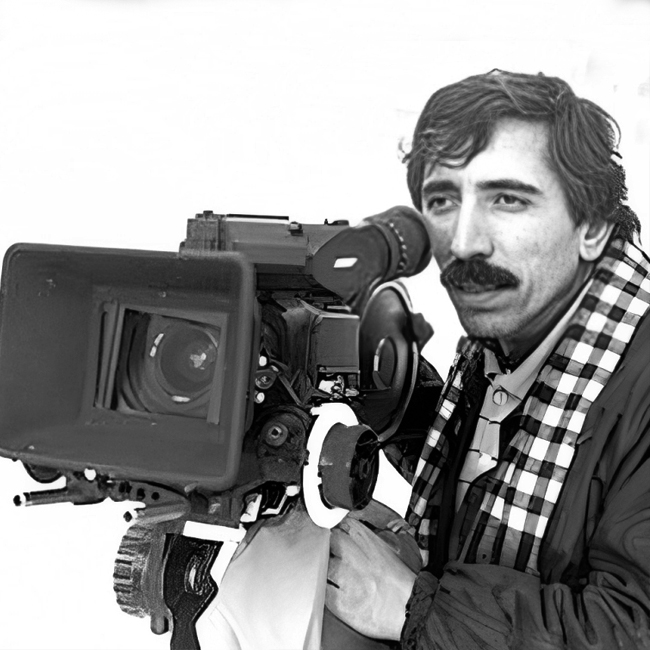

Muhsin Makhmalbāf (May 29, 1957) is a film director, writer, editor, and producer. Born into poverty in Tehran, he began working various jobs at eight to support his family. By seventeen, he joined a guerrilla group, engaging in anti-Shah political activities until his arrest in 1974. His time in prison sparked a passion for storytelling in him, and upon his release, he embraced filmmaking wholeheartedly.
Post-revolutionary Iran of the 1980s witnessed Makhmalbaf’s emergence as one of the country’s most prolific filmmakers. Makhmalbaf’s films reflect the evolution of his thoughts and beliefs, capturing the dramatic twists of his political and religious ideology.
He underwent a significant transformation from a religious fanatic to an intellectual artist. His works include the films Tubah-yi nasūh (Sincere Repentance, 1983) and Arūsī-yi khūbān (Marriage of the Blessed, 1989), which propelled Makhmalbaf to fame and delves into post-revolutionary societal and political aspects. Acclaimed director’s works also include Bāysīkilrān (The Cyclist, 1989), which won the Best Director and Screenplay award at the Fajr International Film Festival, Dastfurūsh (The Peddler, 1987) with episodic narratives, and Nubat-i āshighī (Time of Love, 1995). He also explored Iranian cinema in Nīsiriddīn Shāh, Actur-i Sīnimā (Once Upon a Time, Cinema, 1992) and Salām Sīnimā (Hello Cinema, 1995). His films cover a wide range of subjects, fusing his love of vivid color and music with a focus on the struggles faced by Afghan refugees.
Over time, he became a critic of the regime of the Islamic Republic and its policies, so much so that he left Iran in 2004. Since then, he has made his home outside of Iran, continuing his filmmaking career with works such as Bāghibān (The Gardener, 2012) and Prizīdint (The President, 2014), venturing into diverse locations including Tajikistan, India, Israel, Georgia, and Italy.


